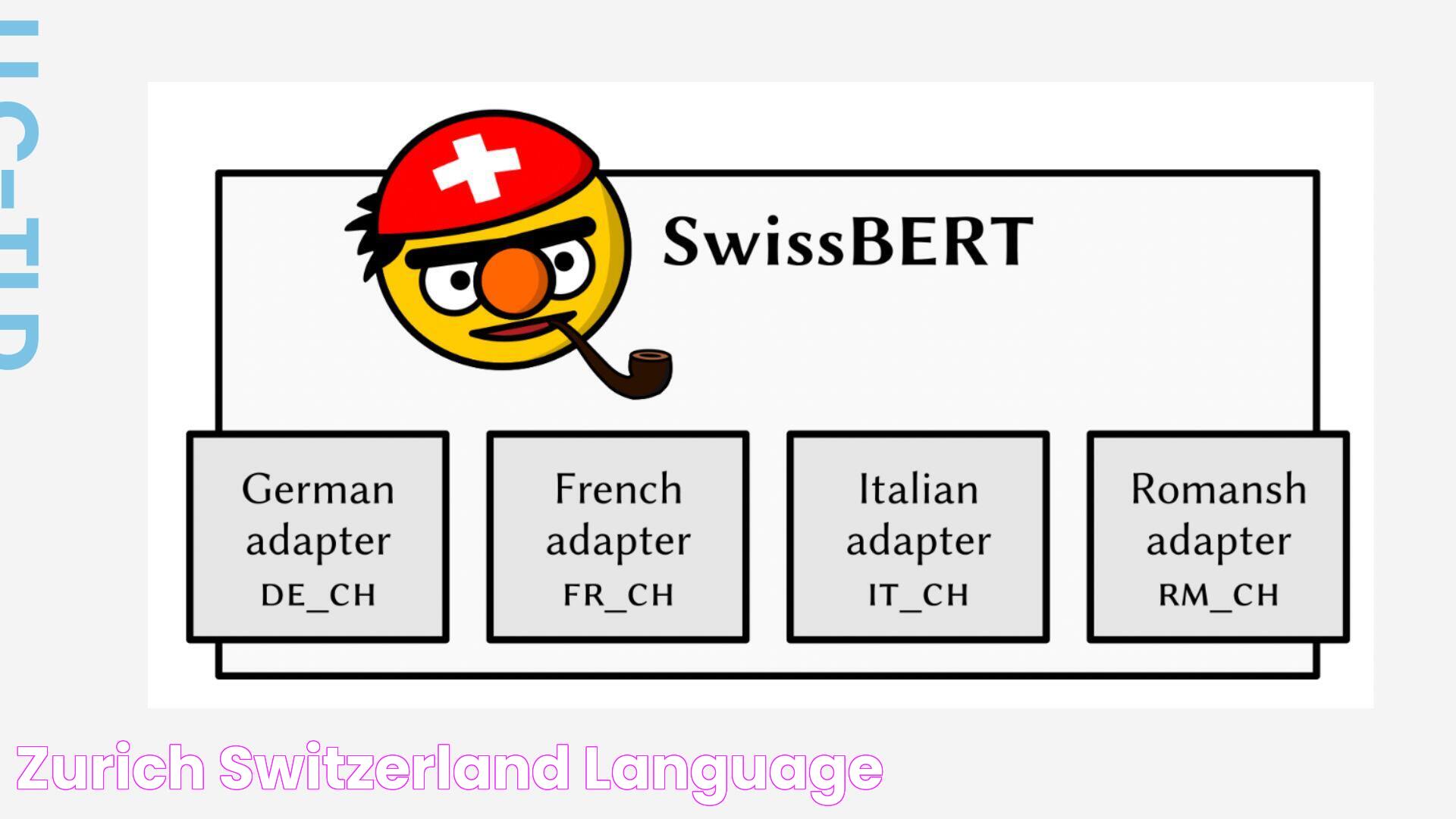Switzerland is a land of cultural diversity, nestled in the heart of Europe, and famous for its picturesque landscapes, delicious chocolates, and precision watches. Yet, beyond its scenic beauty and global reputation, Switzerland is equally fascinating for its linguistic diversity. The nation is home to not one, but several official languages, reflecting its multicultural heritage and unique identity.
Understanding the primary language in Switzerland is no simple feat, as this multilingual country embraces four official languages: German, French, Italian, and Romansh. This linguistic variety can often leave visitors and even some locals a bit perplexed. Each region, or "canton," predominantly speaks one of these languages, adding to the rich tapestry of Swiss culture.
In this article, we’ll take a deep dive into the linguistic landscape of Switzerland, exploring which language holds the title of "primary," the historical and cultural factors contributing to this diversity, and how these languages coexist harmoniously. Whether you’re planning a visit, moving to Switzerland, or simply curious about its languages, this guide will provide you with all the answers you need.
Read also:Ultimate Guide To The Boggs Tool Benefits Applications And Insights
Table of Contents
- Why Does Switzerland Have Multiple Official Languages?
- What Is the Primary Language in Switzerland?
- A Closer Look at German in Switzerland
- How Did French Become an Official Language in Switzerland?
- The Role of Italian in Swiss Culture
- What Is Romansh, and Where Is It Spoken in Switzerland?
- Which Language Is Most Widely Spoken in Switzerland?
- How Does Switzerland Handle Its Multilingualism?
- Language and Education in Switzerland
- What Is the Importance of Languages in Swiss Politics?
- Languages and Business in Switzerland
- Do Most Swiss Citizens Speak English?
- Tips for Communicating in Switzerland as a Visitor
- Frequently Asked Questions About Swiss Languages
- Conclusion
Why Does Switzerland Have Multiple Official Languages?
Switzerland’s multilingualism stems from its unique geographical location and historical development. Bordered by Germany, France, Italy, and Austria, the country has long been influenced by its neighbors. Over centuries, these cultural influences shaped Switzerland into the diverse linguistic nation it is today.
Historically, the Swiss Confederation was formed by an alliance of cantons, each of which brought its own language and traditions. This decentralized structure allowed each region to retain its linguistic identity. As a result, Switzerland adopted German, French, Italian, and Romansh as its official languages to reflect the cultural diversity of its population.
Another factor contributing to Switzerland’s multilingualism is its commitment to neutrality and unity. By recognizing multiple official languages, the country fosters inclusivity and ensures that all linguistic groups feel represented. This approach has played a crucial role in maintaining peace and stability in a nation with such rich cultural diversity.
What Is the Primary Language in Switzerland?
While Switzerland has four official languages, German is the most widely spoken, with approximately 63% of the population using it as their primary language. However, it’s important to note that the German spoken in Switzerland, often referred to as Swiss German or "Schweizerdeutsch," differs significantly from standard German. Swiss German encompasses various dialects that can vary from one canton to another.
French is the second most spoken language, accounting for around 23% of the population. It is predominantly used in the western part of the country, known as the Romandy region. Italian is spoken by about 8% of the population, primarily in the southern canton of Ticino and parts of Graubünden. Lastly, Romansh, a Romance language with Latin roots, is spoken by less than 1% of the population, mainly in the canton of Graubünden.
Given this distribution, it’s safe to say that German holds the title of "primary language" in Switzerland. However, the country’s linguistic diversity is a source of pride and a testament to its inclusive and multicultural ethos.
Read also:Capital Wasteland Mercenaries Fallout 4 An Indepth Insight
A Closer Look at German in Switzerland
German is not just the most spoken language in Switzerland; it is also deeply ingrained in the nation’s culture and daily life. However, Swiss German dialects can be challenging even for native German speakers from other countries. These dialects differ in pronunciation, vocabulary, and grammar, making them uniquely Swiss.
In formal settings such as government and education, standard German, or "Hochdeutsch," is used. This creates an interesting dynamic where Swiss citizens often grow up bilingual in their regional dialect and standard German. This dual-language proficiency is a testament to the Swiss commitment to linguistic adaptability.
Regions where German is predominantly spoken include Zurich, Bern, Basel, and Lucerne. These areas are economic hubs, making German an essential language for business and commerce in Switzerland.
What Makes Swiss German Unique?
- Swiss German has no standard written form; instead, standard German is used for writing.
- It incorporates words and expressions from French, Italian, and Romansh due to Switzerland’s multicultural influence.
- Swiss German lacks certain grammatical structures found in standard German, such as the formal "ß" character.
How Did French Become an Official Language in Switzerland?
The presence of French in Switzerland can be traced back to the country’s geographical proximity to France and historical ties with French-speaking regions. The western part of Switzerland, known as Romandy, has long been influenced by French culture and language.
During the formation of the Swiss Confederation, French-speaking cantons like Geneva, Vaud, and Neuchâtel joined the alliance, bringing their linguistic heritage with them. Over time, French became firmly established as one of Switzerland’s official languages.
Today, French is not only a means of communication but also a reflection of the cultural richness of western Switzerland. The French-speaking regions are known for their culinary traditions, art, and contributions to Swiss literature and philosophy.
The Role of Italian in Swiss Culture
Italian is predominantly spoken in the southern canton of Ticino and some areas of Graubünden. This region shares a border with Italy, and the Italian influence is evident in the architecture, cuisine, and lifestyle of its residents.
Italian-speaking Swiss citizens, known as "Ticinesi," have contributed significantly to the country’s cultural and economic fabric. Italian is also one of the official languages used in federal government and legal proceedings, ensuring its continued prominence in Swiss society.
What Is Romansh, and Where Is It Spoken in Switzerland?
Romansh is the least spoken of Switzerland’s four official languages, with less than 1% of the population using it as their primary language. It is a Romance language, closely related to Latin, and is mainly spoken in the canton of Graubünden.
Despite its small number of speakers, Romansh holds significant cultural and historical value. Efforts to preserve the language include its recognition as an official language and the promotion of Romansh education in schools within Graubünden.
Which Language Is Most Widely Spoken in Switzerland?
German is the most widely spoken language in Switzerland, with nearly two-thirds of the population using it as their primary language. This dominance is primarily due to the large number of German-speaking cantons and the economic importance of German-speaking regions.
How Does Switzerland Handle Its Multilingualism?
Switzerland’s multilingualism is managed through a decentralized political system that grants each canton significant autonomy, including the ability to choose its official language. This system ensures that all linguistic groups feel represented and respected.
Frequently Asked Questions About Swiss Languages
1. Which language should I learn if I’m moving to Switzerland?
A: It depends on the region you’re moving to. German is the most widely spoken, but French or Italian may be more useful in specific areas.
2. Do Swiss people speak English?
A: Yes, many Swiss citizens speak English, especially in urban areas and among younger generations.
3. Is Romansh a dying language?
A: While Romansh faces challenges due to its small number of speakers, efforts are being made to preserve and promote the language.
4. Are all Swiss citizens bilingual?
A: Not necessarily, but many Swiss citizens are proficient in at least two languages due to the country’s multilingual environment.
5. Can I get by in Switzerland with just English?
A: Yes, especially in tourist areas, but learning a few basic phrases in the local language can enhance your experience.
6. What’s the best way to learn Swiss German?
A: Immersion is key. Spending time in a German-speaking canton and engaging with locals will help you pick up the dialect.
Conclusion
Switzerland’s linguistic diversity is one of its most defining features, offering a glimpse into its rich cultural heritage and history. While German is the primary language, the coexistence of French, Italian, and Romansh highlights the country’s commitment to unity amid diversity. Whether you’re visiting, moving, or simply curious, understanding Switzerland’s languages will enrich your experience and appreciation of this remarkable nation.


